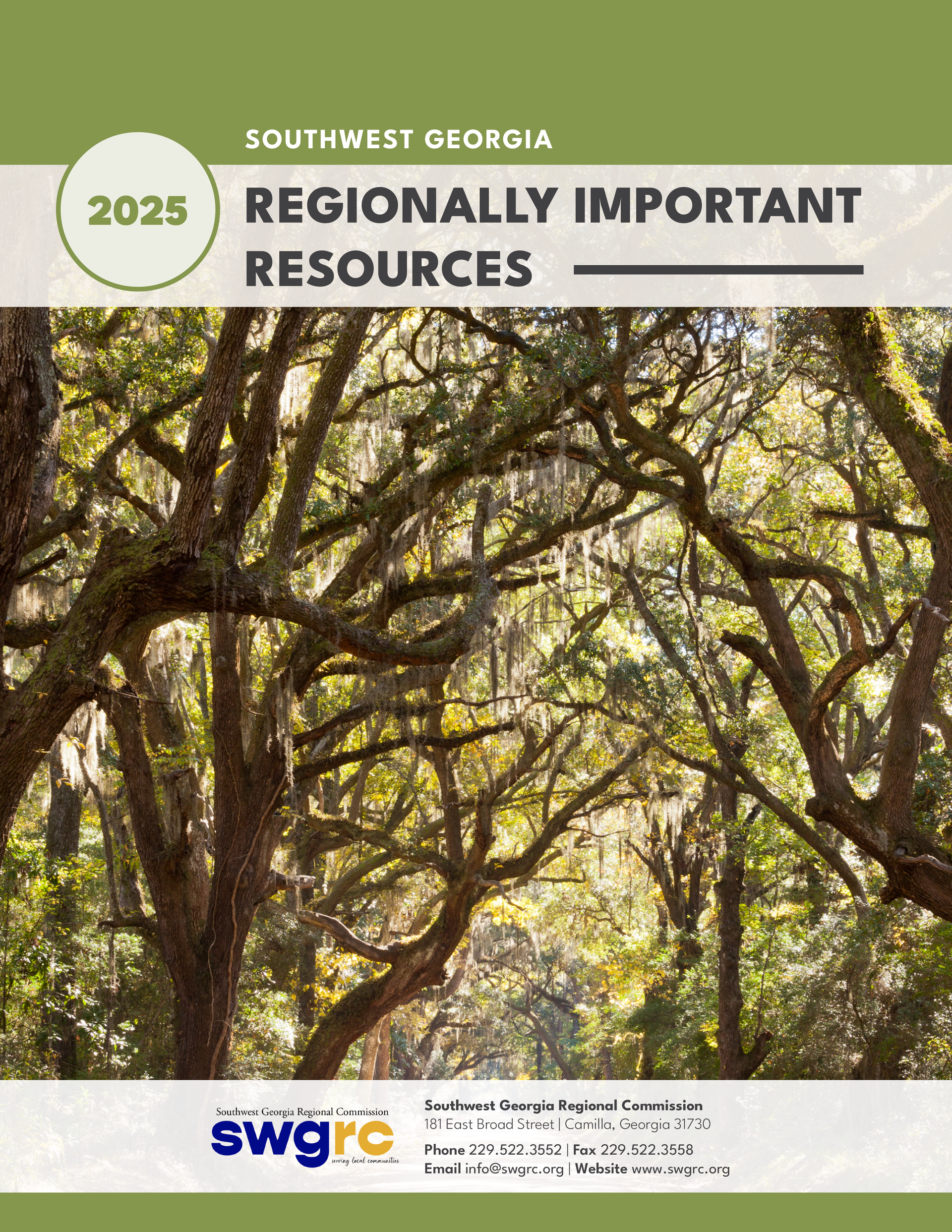Local Planning >
The contractual duration with the Georgia Department of Community Affairs (DCA) spans from July 1 to June 30 annually.
To maintain eligibility for state funding, permitting, and incentive programs, local governments must periodically update key planning documents, including comprehensive plans and service delivery strategies. Communities with DCA-approved comprehensive plans receive Qualified Local Government (QLG) status, granting them access to financial resources .

Regional Plan
The Regional Plan analyzes the region’s growth and development based on local plans and data. It identifies priorities, needs, and opportunities to guide future development and investments.
The purpose of the plan is to answer four questions:
1. Where are we now?
2. Where are we going?
3. Where do we want to be?
4. How do we get there?
Comprehensive Planning
Since 1989, the state has required local governments to develop comprehensive plans, with noncompliance resulting in ineligibility for certain state grants. The SWGRC planning staff helps update these plans to meet state requirements and align with local goals. Comprehensive plans must be fully updated every ten years, with the Community Work Program revised every five years.
How does communities benefit from Comprehensive Planning?
- Quality of life is maintained and improved
- Shared vision for community
- Private property rights are protected
- Economic development is encouraged and supported
- Increased certainty about development
Comprehensive Plan Incentives
Georgia encourages local governments to engage in comprehensive planning by offering access to special financial resources for those with DCA-approved plans. These include CDBG funding, GEFA water and sewer loans, and economic development support from the OneGeorgia Authority. Communities meeting these requirements receive Qualified Local Government (QLG) status, making them eligible for these incentives.
Community Work Program
The SWGRC also assists communities in implementing projects listed explicitly in their community work program.
The SWGRC helps the community provide evidence of its commitment to the project and that the project will help to achieve one or more of its performance standards. The Regional Commission also offers technical assistance to local governments to develop various plans and ordinances, identifies projects and funding sources, develops grant applications, and administers local projects in order to achieve the goals set in their comprehensive plans.
Service Delivery Strategy
The SWGRC helps local governments review and update their Service Delivery Strategies (SDS), a state-mandated process ensuring efficient service provision. Grant applications must align with both local comprehensive plans and SDS agreements. Updates occur when service changes arise and alongside comprehensive plan revisions.
Program Overview
The Service Delivery Strategy (SDS) process helps local governments coordinate service delivery efficiently while addressing revenue distribution and intergovernmental collaboration. To receive state permits or financial assistance, local governments must have a DCA-verified SDS and should review it before applying for state support.
SDS Revision Required If:
The Service Delivery Strategy (SDS) process helps local governments coordinate service delivery efficiently while addressing revenue distribution and intergovernmental collaboration. To receive state permits or financial assistance, local governments must have a DCA-verified SDS and should review it before applying for state support.
Intent of the Act
The Service Delivery Strategy (SDS) process helps local governments coordinate service delivery efficiently while addressing revenue distribution and intergovernmental collaboration. To receive state permits or financial assistance, local governments must have a DCA-verified SDS and should review it before applying for state support.
Revision of the SDS can take place whenever the county and county municipalities agree on its necessity
NOTE: The Service Delivery Act provides DCA with 30 days to review SDS documents to verify their compliance. Be aware that all deadlines are the dates by which DCA must have verified that your SDS is compliant--the deadlines are not submittal dates, they are process completion dates. We recommend 60-90 day lead times to ensure that reviews can be completed and any necessary revisions conducted and subsequently reviewed before passage of applicable deadlines.
Regionally Important Resource
A Regionally Important Resource (RIR) is a significant natural or historic resource that requires special consideration by local governments. Authorized by the Georgia Planning Act of 1989, the Department of Community Affairs (DCA) has established procedures for identifying RIRs statewide. Regional Commissions use these guidelines to develop a Regional Resource Plan that identifies RIRs and recommends best practices for their management.
Developments of Regional Impact
ALWAYS contact your regional commission prior to beginning the DRI process to ensure that your project is submitted and handled appropriately.
Developments of Regional Impact (DRIs) are large-scale developments that are likely to have regional effects beyond the local government jurisdiction in which they are located.
The Georgia Planning Act of 1989 authorized the Department of Community Affairs (DCA) to establish procedures for review of these large-scale projects.
These procedures are designed to improve communication between affected governments and to provide a means of revealing and assessing potential impacts of large-scale developments before conflicts relating to them arise.
At the same time, local government autonomy is preserved since the host government maintains the authority to make the final decision on whether a proposed development will or will not go forward.


